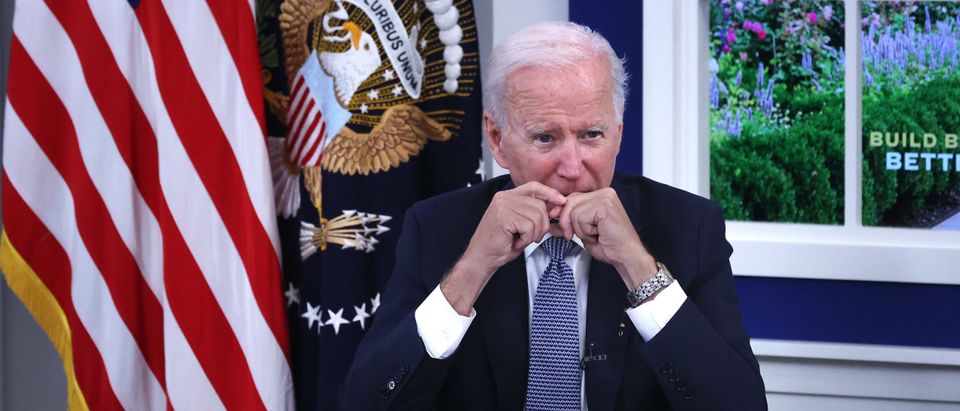President Joe Biden signed a $480 billion extension of the federal debt ceiling on Thursday night, temporarily averting a Treasury default.
The Senate passed the short-term legislation on Oct. 7, and the House of Representative passed it on Tuesday. The debt ceiling is now scheduled to be breached on Dec. 3, the same day that federal government funding runs out.
Biden has signed the stopgap debt ceiling bill, per WH. pic.twitter.com/xCR6p93fx4
— Emily Cochrane (@ESCochrane) October 15, 2021
The U.S. Treasury previously expected to breach the debt ceiling on Oct. 18. Treasury Secretary Janet Yellen had warned that a failure to raise it could lead to a worldwide economic recession, and a drop in the U.S.’ credit rating.
Senate Republicans, led by Minority Leader Mitch McConnell, had insisted that Democrats use the budget reconciliation process to raise the debt ceiling. However, Democrats refused, with Majority Leader Chuck Schumer claiming that the process was too “risky” and would risk a default. Eleven Republicans, including McConnell, ultimately voted with Democrats to break a filibuster and temporarily raise the debt ceiling.
After they voted to break the filibuster, however, Schumer blasted Republicans for “play[ing] a dangerous and risky partisan game.” (RELATED: Watch Joe Manchin’s Reaction As Schumer Goes On Victory Lap In Speech)
“I am glad that their brinksmanship did not work,” he added.
In response, McConnell promised that Republicans would not vote again to help raise the debt ceiling.
“In light of Senator Schumer’s hysterics and my grave concerns about the ways that another vast, reckless, partisan spending bill would hurt Americans and help China, I will not be a party to any future effort to mitigate the consequences of Democratic mismanagement. Your lieutenants on Capitol Hill now have the time they claimed they lacked to address the debt ceiling through standalone reconciliation, and all the tools to do it,” he wrote in a letter to Biden.


